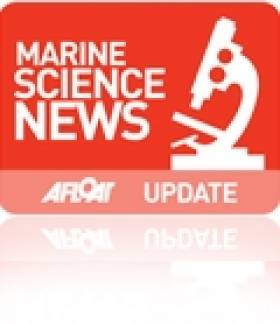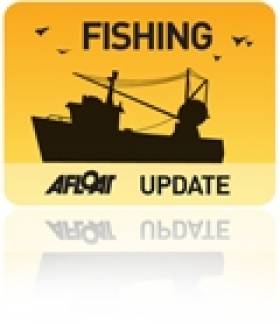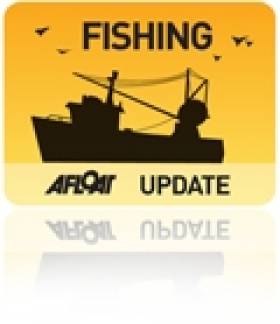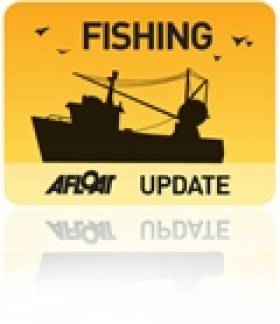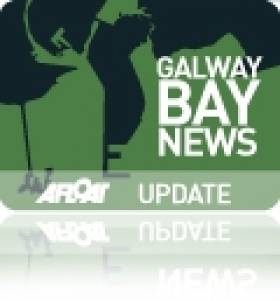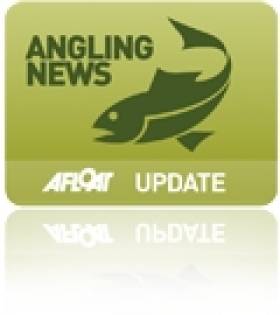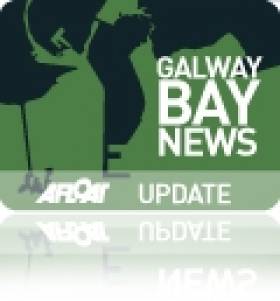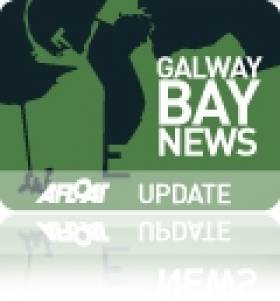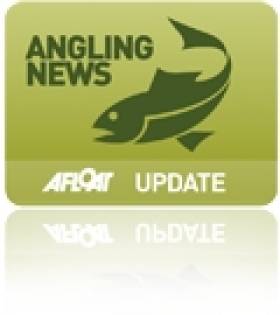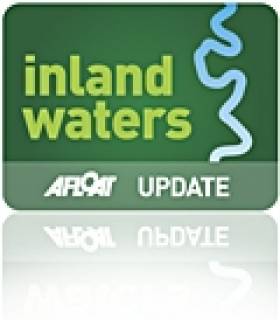Displaying items by tag: Salmon
Marine Institute Stands over Scientific Paper on Aquaculture Impacts on Wild Salmon Stock
#aquaculture – A recent Marine Institute study published in the peer reviewed international Agricultural Sciences journal (June 2013) found no correlation between the presence of aquaculture and the performance of adjacent wild salmon stocks.
The study by Dr. Dave Jackson and colleagues at the Marine Institute examined geographic and temporal trends in Atlantic salmon stock abundance at a River Basin District level and evaluated the effect of salmon aquaculture sites and freshwater habitat quality as potential drivers of stock abundance.
This study found no correlation between the presence of aquaculture and the performance of adjacent wild salmon stocks. Freshwater habitat quality was found to have a highly significant correlation with stock status, suggesting that it may be a key driver, implicated in the survival of individual stocks.
The paper, Evaluation of the impacts of aquaculture and freshwater habitat on the status of Atlantic salmon stocks in Ireland, is available to download for free. An open access fee is payable by the author only after a paper has been peer reviewed and accepted for publication.
Access to quality research is vital to the scientific community and beyond and open access ensures that members of the public and the scientific community can freely access quality research without having to pay a download fee.
The Marine Institute stands firmly over all peer reviewed scientific papers published by its staff, and we support open access to high quality research.
The link to the journal is http://www.scirp.org/journal/as/
and the publication can be downloaded as a PDF document directly at this link: http://dx.doi.org/10.4236/as.2013.46A010
#Fishing - The Irish Times reports that Inland Fisheries Ireland (IFI) has expressed "serious concerns" over the findings of a new study on wild salmon in Ireland.
The State agency for Ireland's fisheries argues that the study - which concluded not only that pollution has a greater impact on wild salmon numbers than fish farming, but also that salmon catchments in close proximity to aquaculture schemes were some of the best performing - is based on flawed methodology.
IFI is among the chorus of voices opposed to the planned organic salmon farm off the Aran Islands in Galway Bay - a 500-hectare project by Bord Iascaigh Mhara (BIM) that would be the largest of its kind in Europe if given the go-ahead.
Marine Minister Simon Coveney recently attempted to alleviate concerns over the controversial scheme, claiming there would be no damage to the environment or fish stocks.
However, the controversy doesn't end there, as last month celebrity chef and 'Slow Food' champion Darina Allen wrote to the minister over erroneous claims in BIM's environmental impact statement (EIS) for the project.
As reported by the Galway Independent, Allen contacted Minister Coveney to clarify that the Slow Food movement does not support fish farming projects, after references to the initiative in the EIS "seemed to create a lot of confusion".
Allen told the paper: “Many people contacted me under the perception that Slow Food endorsed the whole salmon farm thing and actually Slow Food has made no statement whatsoever on it.”
Later, Michèle Mesmain of Slow Food International confirmed that “salmon farming does not fit in any pillar of Slow Food”.
The Galway Independent has much more on the story HERE.
#Fishing - The growing black market for coarse fish in eastern Europe is being blamed for an increase in illegal fishing on Ireland's inland waterways.
That's the situation according to the Sunday Independent, which also highlights the "major problem" of salmon poaching by "Irish criminals".
Last month Afloat.ie reported on the prosecution of two Lithuanian brothers who were fined for illegal coarse angling on Lough Derg.
And the Independent says a number of similar cases are due to be heard before Irish courts over the coming months.
Meanwhile, poaching of salmon is hitting the headlines across the country - from the south, where two men were recently prosecuted for illegal fishing of spawning salmon in Co Limerick, to the north, where intimidation of fisheries staff is reportedly a problem.
In better fisheries news, The Guardian says cod stocks in the North Sea could be in for a revival, after a survey by the Marine Stewardship Council and others suggested that effective management could soon see the species certified as 'sustainable'.
Drogheda Hosts North Atlantic Salmon Conference
#Fishing - Drogheda is hosting the 30th annual meeting of the North Atlantic Salmon Conservation Organisation (NASCO) this week till Friday 7 June.
The prestigious fisheries conference will take place in the Westcourt Hotel and will be attended by delegates from Canada, Denmark (in respect of the Faroe Islands and Greenland), the European Union (representing its 27 member states), Norway, Russia and the USA.
Welcoming the conference to Drogheda on Tuesday 4 June, Minister Fergus O’Dowd said it "will continue the key work of NASCO, using the best scientific information, and international co-operation to conserve and manage Atlantic salmon populations.
"I wish the many delegates a friendly and intellectually stimulating stay in Drogheda where the meeting programme will no doubt provide insights and an outstanding platform for dynamic networking to ensure the continued conservation of our precious salmon stocks."
Based in Edinburgh, NASCO is an international organisation established by an intergovernmental convention in 1984. Its main function is to conserve, restore, enhance and rationally manage Atlantic salmon through international cooperation taking account of the best available scientific information.
NASCO is the only intergovernmental organisation with this mandate, which it implements through international consultation, negotiation and co-operation.
Ireland is at the forefront of salmon conservation internationally, according to Inland Fisheries Ireland, which adds that Irish participants at the conference include a Government delegation of managers and scientists and representatives of a number of Irish-based NGOs, including Salmon Watch Ireland.
The cross-border Loughs Agency, which has responsibility for salmon conservation and protection Foyle and Carlingford Loughs, will also be represented as part of the Irish delegation.
BIM Pulls Out Of Galway Bay Fish Farm Meeting
#FishFarm - Galway Bay FM reports that Bord Iascaigh Mhara (BIM) has pulled out of a public meeting on the proposed Galway Bay deep sea fish farm scheduled for this evening (25 April).
The Sinn Féin-organised meeting at the Westwood Hotel in the city tonight was intended to be a debate hearing arguments from both sides regarding the controversial aquaculture project, according to the Galway Advertiser.
However, a statement issued by BIM - which is proposing the salmon farm scheme - claims that "recent statements from some angling groups" have made it impossible to provide a public platform for its side of the issue.
If the project goes ahead, the 500-hectare facility would be the largest of its kind in Europe. But it has faced strong opposition from local anglers and the State fisheries body Inland Fisheries Ireland over the risk posed by sea lice.
As previously reported on Afloat.ie, the proposed fish farm off the Aran Islands has even put local TDs at odds over questions of the potential benefits and hazards.
Meanwhile, the Galway Advertiser says that opposition group Galway Bay Against Salmon Cages plans to lodge their protest at the constituency office of Taoiseach Enda Kenny in Castlebar this Saturday 27 April as part of a nationwide campaign.
New Salmon & Sea Trout Bylaw for River Suir
#Angling - Recreational angling on the River Suir is set for a change as a new bylaw sought by a majority of anglers has been signed into law.
As of Friday 12 April till the end of the season, when fishing for salmon and sea trout (over 40cm) on the River Suir, the use of worms, prawn, shrimp or any other crustacean or artificial forms thereof as bait is prohibited - as is the use of any fish hooks other than single barbless hooks, up to and including 11 May.
From 12 May to 30 September the bylaw provides for a bag limit of five fish for the season subject to a daily bag limit of one fish. Anglers must use a single barbless hook once their daily or season bag limit has been reached.
Inland Fisheries Ireland (IFI) points out that this bylaw is applicable to the 2013 season only.
It is hoped that this measure will ensure even better angling for the many local anglers and angling tourists that come to fish the Suir for brown trout from Tipperary to Waterford.
Groups Appeal For Clarity Over Galway Bay Fish Farm Plans
#FishFarm - Groups opposed to the controversial deep-sea fish farm in Galway Bay have written to TDs asking them to bring clarity to the growing conflict over the proposals.
As the Southern Star reports, the groups have asked for a review of the current licensing requirements for aquaculture schemes to ensure that the process is transparent and open to independent review - amid news that both local TDs and State agencies are squabbling over the issue.
"To have a single minister responsible for all these stages of an industry that has such serious pollution issues associated with it, as well as the potential to devastate valuable salmon and sea trout stocks, is inappropriate and open to abuse," argues Alec O'Donovan of Save Bantry Bay, one of the groups in an alliance that include local tourism, angling and environmental interests.
Group chairman Kieran O'Shea singled out for criticism the Department of the Marine's apparent determination to push forward with Bord Iascaigh Mhara's (BIM) fish farm plans in spite of a moratorium on further development of salmon farming three years ago at EU level.
"This not only makes a mockery of EU law but highlights a worrying lack of concern for the environment," said O'Shea.
Meanwhile, another opposition group has spoken out over a letter of support for the fish farm plans by Irish seafood producers and other businesses.
According to the Galway Independent, Brian Curran Galway Bay Against Salmon Cages (GBASC) claimed the letter - signed by 43 firms, only six of which are directly involved in food production in Galway - was a "set-up".
A spokesperson for BIM dismissed Curran's comments as being "in very poor taste" in seeking "to undermine the intentions or credibility of anyone who would go out of their way to place their support for the proposal 'on the record'."
As previously reported on Afloat.ie, the 500-hectare development off Inis Óirr in the Aran Islands would be the largest of its kind in Europe.
Squabbling State Agencies Skip Fish Farm Debate
#FishFarm - The expected debate between two State agencies at loggerheads over the proposed Galway Bay deep-sea fish farm failed to take place as planned over the weekend as neither body sent a representative.
Bord Iascaigh Mhara (BIM) and Inland Fisheries Ireland (IFI) had been expected to debate the planned 500-hectare organic salmon farm off the Aran Islands during the Galway Food Festival over the Easter weekend.
Organisers were informed at the last minute that neither agency would be involved in the public event, with BIM telling The Irish Times it did not feel it would be appropriate to discuss the matter in an open forum when negotiations were ongoing.
Both sides have differed over the potential impact on wild salmon populations in the area, with IFI citing research that damns the negative consequences of sea lice infestations in fish farms.
Despite their absence, the debate went ahead as scheduled, with local businesses on both sides of the argument expressing their views.
The Irish Times has more on the story HERE.
Limerick Salmon Anglers Hail Net Fishing Ban On River Feale
#Angling - The battle to stem the decline of salmon stocks in Ireland's inland waterways has taken a step forward in Limerick with the news that net fishing on the River Feale will be banned from the end of July.
As the Limerick Leader reports, the end of licensed net fishing on the Feale - and important salmon spawning watercourse that flows from the Mullaghareirk Mountains in Cork through Limerick and Kerry to the mouth of the Shannon - has been welcomed by local stakeholders as "a vital step towards restoring depleted fish stocks on the embattled river".
Salmon stocks in the Feale alone have reportedly collapsed by more than 10,000 in just six years.
Local angler Brendan Danagher said that the decision to ban net fishing would also encourage anglers to accept other restrictions for conservation on the river - which include a maximum catch of one fish per person per day, with a total of three catches allowed per individual till the end of the season.
“If they’re bringing in new bylaws, they must have the goodwill of anglers," he added.
The Limerick Leader has more on the story HERE.
NI Road Plans In Balance Over Salmon River Concerns
#InlandWaterways - Plans for one of Northern Ireland's biggest road schemes are in jeopardy after it emerged that construction could interfere with important salmon rivers.
As the Belfast Telegraph reports, High Court Justice Stephens said he was "minded" to put a stop to the A5 road project between Derry and South Tyrone as he found there had been a failure to carry out an impact assessment on the Special Areas of Conservation designated on the Rivers Foyle and Finn.
Both rivers are important for migrating salmon whose numbers are dwindling in Northern Ireland's waterways, despite reports of isolated surplus counts in areas like Lough Melvin.
The Department for Regional Development now has till next Friday to argue that the omission in their preparations should not prompt the quashing of plans for the new cross-border route.
The Belfast Telegraph has more on the story HERE.


























